This is the company’s first progress report one year after it launched “Forever Chocolate,” – a sustainability strategy that aims to achieve 100% sustainable cocoa by 2025.
Barry Callebaut committed to the following when it launched the intative last year:
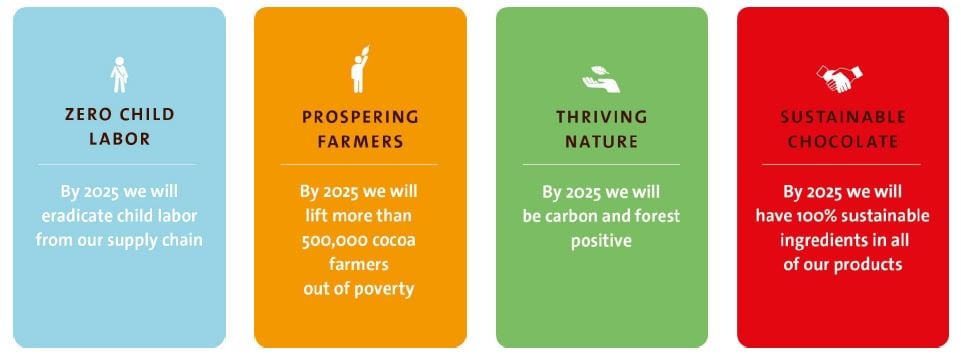
The progress report - covering the period September 1, 2016, to August 31, 2017 - was third party verified by Denkstatt GmbH, in accordance with Global Reporting Initiative (GRI) principals.
Other ingredients
Barry Callebaut also sourced 30% of non-cocoa ingredients 'sustainably' during the period. It defines sustainable non-cocoa ingredients as those from certified or verified sustainable sources such as Rainforest Alliance, UTZ, and Fairtrade. It has pledged to source 100% of non-cocoa ingredients - including sugar, dairy, palm, nuts, coconut oil, vanilla and soy lecithin - from certified sources in all its products by 2025.
23% productivity increase
Barry Callebaut had around 157,000 cocoa farmers in one of its sustainability programs on good agricultural practices over the past year to increase their productivity.
The company last year said it sources cocoa from roughly 1m farmers globally, including 300,000 farmers in Côte d’Ivoire.
“Through Barry Callebaut’s Cocoa Horizons program, a total of CHF 7.5 million ($7.57m) in premiums was reinvested in cocoa farming communities,” said the chocolate provider this month.
Barry Callebaut also developed a farm services business that offers cocoa farmers packages that improve their productivity. In 2016/2017, the company loaned its packages to a total of 5,814 farmers.
“We see a very significant impact of our productivity package which increased [cocoa farms’] productivity by 23%,” said Barry Callebaut’s CEO Antoine de Saint-Affrique.
Poverty KPI
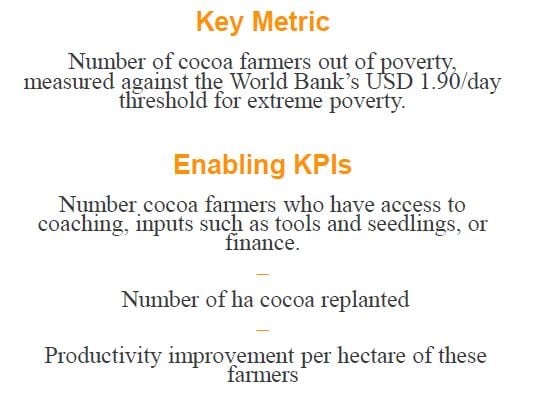
The cocoa processor hopes to lift more than 500,000 cocoa farmers out of poverty by 2025.
It collected baseline data through a study with the French Development Agency (AFD), which found cocoa farmers earn roughly 568 West African francs (CFA) per day, approximately $1. It said this was a direct result of low cocoa yields (average of 435 kg/ha) on small cocoa farms.
The results were collected from around 700 Ivorian cocoa farmers in 2013/14.
Barry Callebaut will report progress against the baseline data in its 2017/18 Forever Chocolate report.
Child labor prevention: CLMRS rollout
The company promised a child labor free cocoa supply chain by 2025 when it launched Forever Chocolate in November last year.
It said it would measure progress by the number of child labor cases identified and remedied and the number of groups supplying Barry Callebaut with a child labor monitoring & remediation systems in place.
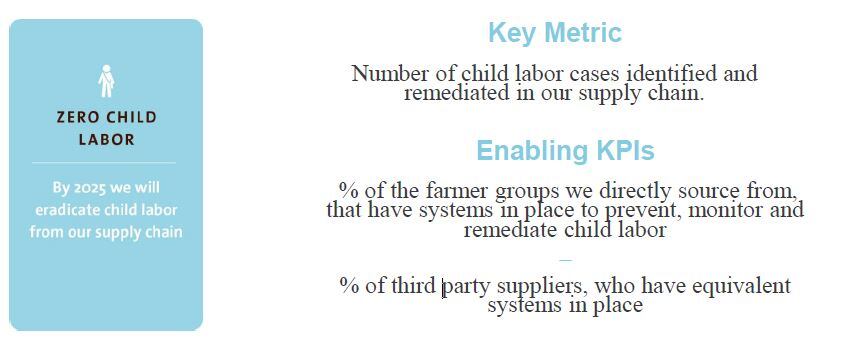
In 2016/17 Barry Callebaut trained over 20,000 farmers on child labor awareness over the past year, and it discovered 247 cases of the worst forms of child labor using its Child Labor Monitoring and Remediation System (CLMRS) and equivalent systems.
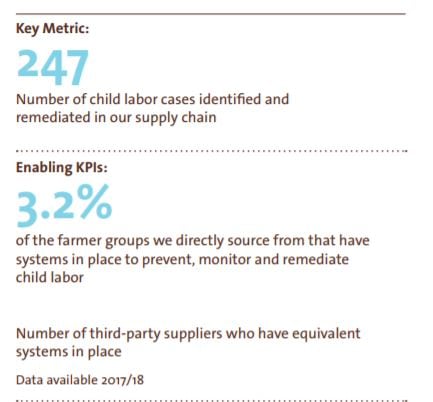
“As Barry Callebaut aims to eradicate child labor from its entire supply chain, not just cocoa, a heat map is being created to identify those commodities at risk of including child labor in their supply chains,” the company said.
The company piloted the Interational Cocoa Intiative's CLMRS at two Ivorian cooperatives in 2016/17, covering 494 farmers.
In 2016/17, 3.2% of the 340 farmer groups Barry Callebaut directly sources from in Côte d’Ivoire had CLMRS equivalent systems in place.
Barry Callebaut said it is updating its supplier code to incentivize suppliers of non-cocoa ingredients to have systems equivalent to a CLMRS in place.
Protecting forestland and using renewable energy
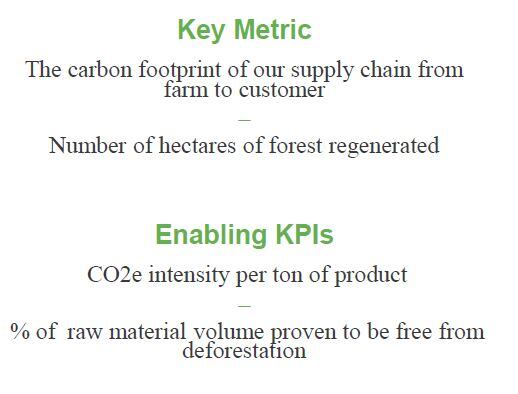
Barry Callebaut said it was one of the companies driving the Cocoa and Forest Initiative Frameworks for Action that were signed on Nove 16, 2017 at the UN Climate Conference in Bonn, Germany.
“These frameworks are intended to eradicate cocoa farming-related deforestation in Côte d’Ivoire and Ghana (which together produces nearly two-thirds of the world’s supply of cocoa beans),” the company said in the report.
Over the past year, Barry Callebaut started tracking 90,000 cocoa farmers in terms of their farming locations to prevent itself from sourcing from protected forest areas.
Additionally, it developed a road map to achieve a “carbon-positive” way of manufacturing using renewable energy.
The company’s CO2e intensity per ton of average products decreased from 4.4% tons in 2014/2015 to 4.32 tons in 2016/2017. The number of its factories using only renewable electricity sources increased by seven to a total of 13 factories in 2016/2017.
[Additional reporting by Oliver Nieburg]
